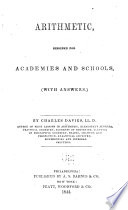 | Charles Davies - Arithmetic - 1844 - 356 pages
...numbers, we have the following RTJtE. I. Place the numbers on the same line, and divide by the least number that will divide two or more of them without a remainder, and set down in a line below the quotients and the undivided numbers. II. Divide as before, until there... | |
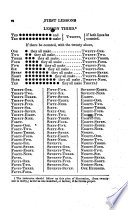 | Arithmetic - 1846 - 258 pages
...Ans. 28rV. CASE. V. To find the least common denominator. RULE. — (') Divide the given denominators by any number that will divide two or more of them without a remainder; then (2) divide the undivided numbers and last quotients, by any number that will divide two or more... | |
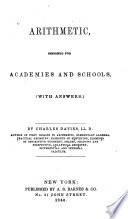 | Charles Davies - Arithmetic - 1846 - 362 pages
...numbers, we have the following RULE:. I. Place the numbers on the same line, and divide by the least number that will divide two or more of them without a remainder, and set down in a line below the quotients and the undivided numbers. II. Divide as before, until there... | |
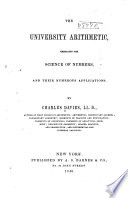 | Charles Davies - Arithmetic - 1846 - 370 pages
...compose the common multiple. FIRST METHOD. I. Place the numbers on the same line, and divide by the least number that will divide two or more of them without a remainder, and set down in a line below, the quotients and the undivided numbers. II. Divide as before, until there... | |
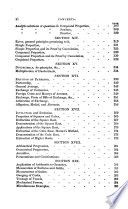 | James Bates Thomson - Arithmetic - 1847 - 426 pages
...the same, if, instead of dividing by the smallest, number, we divide the given numbers by any prime number, that will divide two or more of them, without a remainder. 2. The preceding operation, it will be seen, resolves the given numbers into their prime factors, (Art.... | |
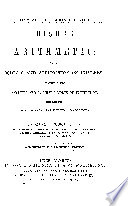 | James Bates Thomson - Arithmetic - 1847 - 434 pages
...the same, if, instead of dividing by the smallest number, we divide the given numbers by any prime number, that will divide two or more of them, without a remainder. 2. The preceding operation, it will be seen, resolves the given numbers into their prime factors, (Art.... | |
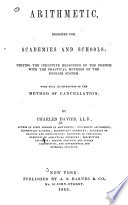 | Charles Davies - Arithmetic - 1848 - 372 pages
...common multiple of several numbers, I. Place the numbers on the same line, and divide by any prime number that will divide two or more of them without a remainder, and set down in a line below, the quotients and the undivided numbers.. II. Then divide as before, until... | |
 | Joseph Ray - Algebra - 1848 - 250 pages
...MORE QUANTITIES. 1st. Arrange the quantities in a horixontal line, and divide them by any prime factor that will divide two or more of them without a remainder, and set the quotients, together with the undivided quantities, in a line beneath. 2d. Continue dividing... | |
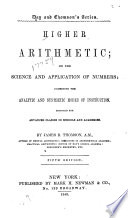 | James Bates Thomson - Arithmetic - 1848 - 434 pages
...the same, if, instead of dividing by the smallest number, we divide the given numbers by any prime number, that will divide two or more of them, without a remainder. 2. The preceding operation, it will be seen, resolves the given numbers into their prime factors, (Art.... | |
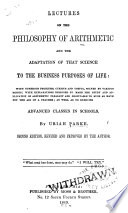 | Uriah Parke - Arithmetic - 1849 - 414 pages
...multiple of two or more numbers, we arrange the numbers in a line and proceed to divide by any prime number that will divide two or more of them without a remainder; and continue the operation on the quotients and the remaining numbers, until no two of them have a common... | |
| |